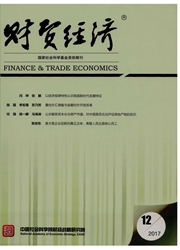

 中文摘要:
中文摘要:
本文基于2000~2013年的月度数据和递归(Recursive)VAR模型,研究国际大宗商品价格的变化及中国因素的相对重要性。结果发现:实体经济需求和流动性水平相对供给因素对大宗商品价格的影响更为显著。中国因素对于不同种类大宗商品的影响存在差异,中国需求对铜、铝、锌的影响程度高于发达国家,而且影响的时间相对发达国家更为持久;但是,中国的流动性对大宗商品价格的影响程度普遍低于发达国家,而且影响时间更为短暂。金融危机期间大宗商品市场受发达国家需求的影响显著增强,量化宽松货币政策推升了大宗商品价格,表明金融危机及相关刺激政策影响了大宗商品市场的运行。
 英文摘要:
英文摘要:
This paper uses recursive VAR model and monthly data from January 2000 to July 2013 to investigate what determine the international commodity price fluctuation and the importance of China factor. The results show that economic growth and monetary liquidity rather than supply are the main drivers of international commodity price. The impact of China factors on different commodity prices is significantly different. Chinese demand is more significant and persistent than that of OECD in some commodity such as copper, aluminum and zinc, but Chinese money supply is less significant and persistent than that of OECD in most commodities. Financial crisis changed the operation of international commodity market due to the fact that in the period of crisis the demand of developed countries and quantitative easing monetary policy has bigger effect on international commodity price.
 同期刊论文项目
同期刊论文项目
 同项目期刊论文
同项目期刊论文
 期刊信息
期刊信息
